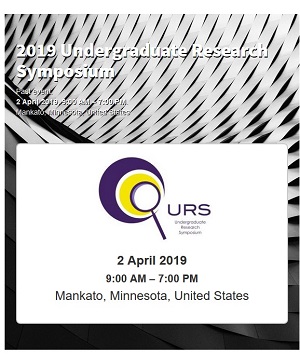Preparing Teachers for Diverse Classrooms
Location
CSU 203
Start Date
2-4-2019 10:00 AM
End Date
2-4-2019 11:00 AM
Student's Major
Elementary and Early Childhood Education
Student's College
Education
Mentor's Name
Elizabeth Sandell
Mentor's Department
Elementary and Early Childhood Education
Mentor's College
Education
Second Mentor's Department
Elementary and Early Childhood Education
Description
This study responded to the question: How do changes in inter-cultural competency (ICC) compare among pre-service teachers at three data collection points? Intercultural competency was defined as “the capability to accurately understand and adapt behavior to cultural differences and commonalities (Hammer & Bennett, 2010).” The study was based on the Developmental Model of Intercultural Sensitivity (Bennett, 1986) which identified five orientations toward cultural differences: denial, polarization, minimization, acceptance, and adaptation. Investigators hypothesized that the 48 students would have a statistically significant change in their ICC from the beginning of their academic studies until just before student teaching. Subjects completed the Intercultural Developmental Inventory (IDI) (Hammer & Bennett, 2012), which calculates a score that reflects capacity for cross-cultural adaptation. Results showed that (1) students who completed the one-semester course (Human Relations) improved their ICC and (2) students who completed the professional education program (3 more semesters) improved their ICC. Most importantly, students improved their ICC from the beginning of their academic studies until the beginning of student teaching. The data analysis showed that students did have a statistically significant change in their ICC, and results suggested that the program's content, pedagogy, and mentorship has a positive impact on pre-service teachers. Outcomes are being shared with MSU's faculty to help determine the efficacy of teaching methods used by the instructors to develop Cultural Competency. Data and information will be reviewed with administrators for program planning, implementation, and assessment.
Preparing Teachers for Diverse Classrooms
CSU 203
This study responded to the question: How do changes in inter-cultural competency (ICC) compare among pre-service teachers at three data collection points? Intercultural competency was defined as “the capability to accurately understand and adapt behavior to cultural differences and commonalities (Hammer & Bennett, 2010).” The study was based on the Developmental Model of Intercultural Sensitivity (Bennett, 1986) which identified five orientations toward cultural differences: denial, polarization, minimization, acceptance, and adaptation. Investigators hypothesized that the 48 students would have a statistically significant change in their ICC from the beginning of their academic studies until just before student teaching. Subjects completed the Intercultural Developmental Inventory (IDI) (Hammer & Bennett, 2012), which calculates a score that reflects capacity for cross-cultural adaptation. Results showed that (1) students who completed the one-semester course (Human Relations) improved their ICC and (2) students who completed the professional education program (3 more semesters) improved their ICC. Most importantly, students improved their ICC from the beginning of their academic studies until the beginning of student teaching. The data analysis showed that students did have a statistically significant change in their ICC, and results suggested that the program's content, pedagogy, and mentorship has a positive impact on pre-service teachers. Outcomes are being shared with MSU's faculty to help determine the efficacy of teaching methods used by the instructors to develop Cultural Competency. Data and information will be reviewed with administrators for program planning, implementation, and assessment.
Recommended Citation
Smith, Tori and Sean O'Rourke. "Preparing Teachers for Diverse Classrooms." Undergraduate Research Symposium, Mankato, MN, April 2, 2019.
https://cornerstone.lib.mnsu.edu/urs/2019/oral-session-01/3




